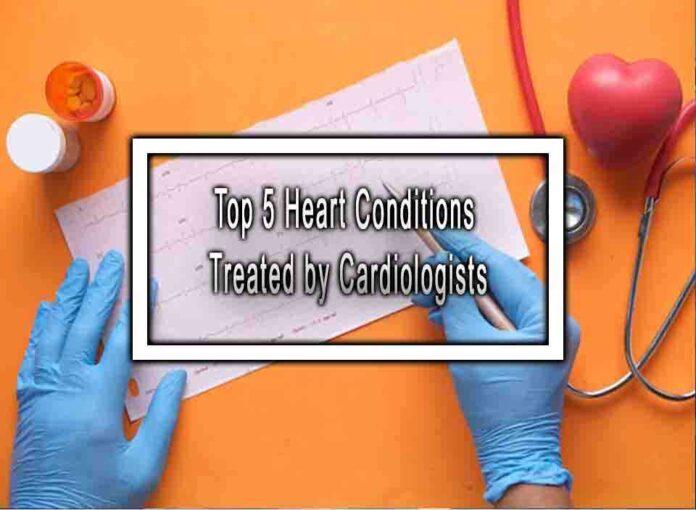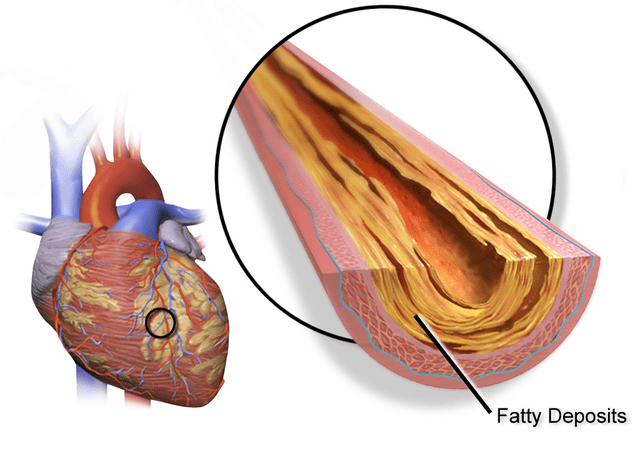Cardiologists are medical specialists who diagnose and treat various heart and cardiovascular conditions. Here are the top five heart conditions that are commonly treated by cardiologists:
Coronary Artery Disease (CAD):
- Coronary artery disease is the most common heart condition treated by cardiologists. It occurs when the blood vessels (coronary arteries) that supply the heart with oxygen and nutrients become narrowed or blocked due to the buildup of cholesterol and plaque. Cardiologists may treat CAD with medications, lifestyle modifications, angioplasty, stent placement, or coronary artery bypass surgery.

Hypertension (High Blood Pressure):
- High blood pressure is a leading risk factor for heart disease and stroke. Cardiologists help manage hypertension by prescribing medications, recommending lifestyle changes (such as diet and exercise), and monitoring blood pressure to prevent complications.
Heart Failure:
- Heart failure occurs when the heart is unable to pump blood effectively, leading to symptoms like fatigue, shortness of breath, and fluid retention. Cardiologists manage heart failure through medication management, lifestyle changes, and in some cases, implantation of devices like pacemakers or defibrillators.
Arrhythmias:
- Arrhythmias are abnormal heart rhythms that can range from benign to life-threatening. Cardiologists diagnose and treat arrhythmias using medications, lifestyle changes, electrical cardioversion, catheter ablation, or implantable devices like pacemakers and implantable cardioverter-defibrillators (ICDs).
Valvular Heart Disease:
- Valvular heart disease involves abnormalities or damage to the heart valves, which can affect blood flow within the heart. Cardiologists assess and treat valvular heart disease, which may require medical management, surgical repair, or valve replacement surgery.
It’s important to note that cardiologists also diagnose and manage a wide range of other cardiovascular conditions, including cardiomyopathies, congenital heart defects, peripheral artery disease, and more. Patients with risk factors for heart disease, such as a family history of heart conditions, high cholesterol, diabetes, or smoking, should have regular check-ups with a cardiologist to assess their heart health and receive guidance on prevention and treatment. Early detection and intervention can greatly improve outcomes for individuals with heart conditions.












